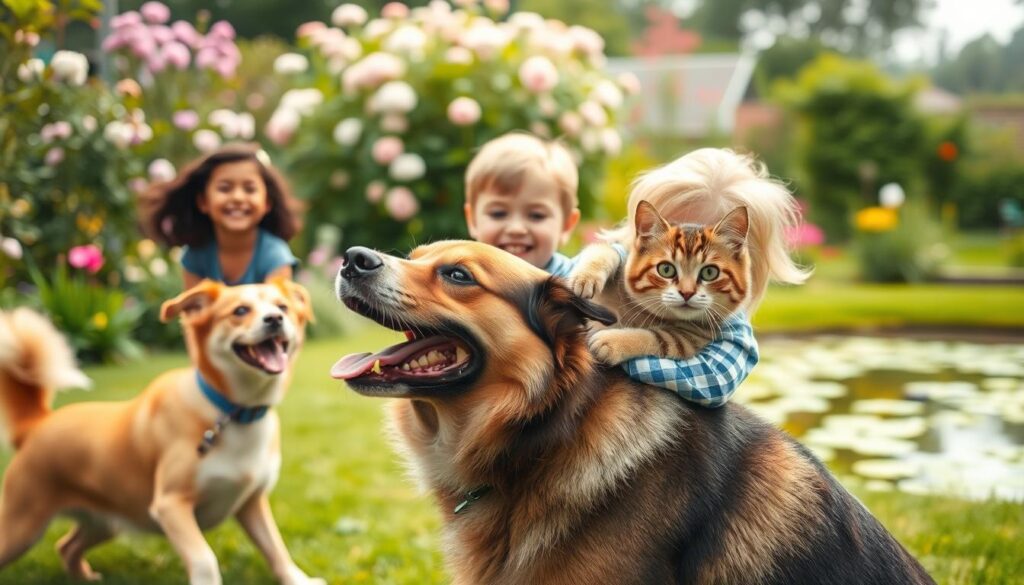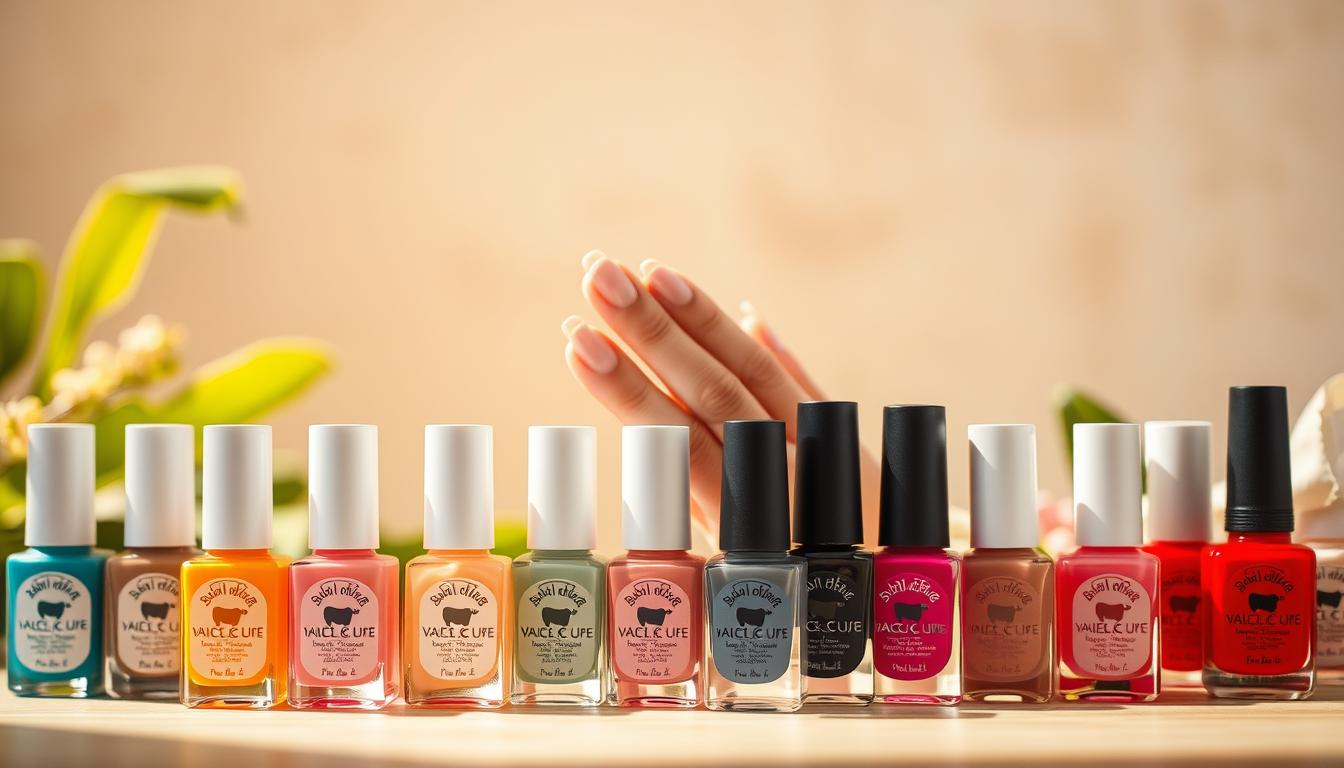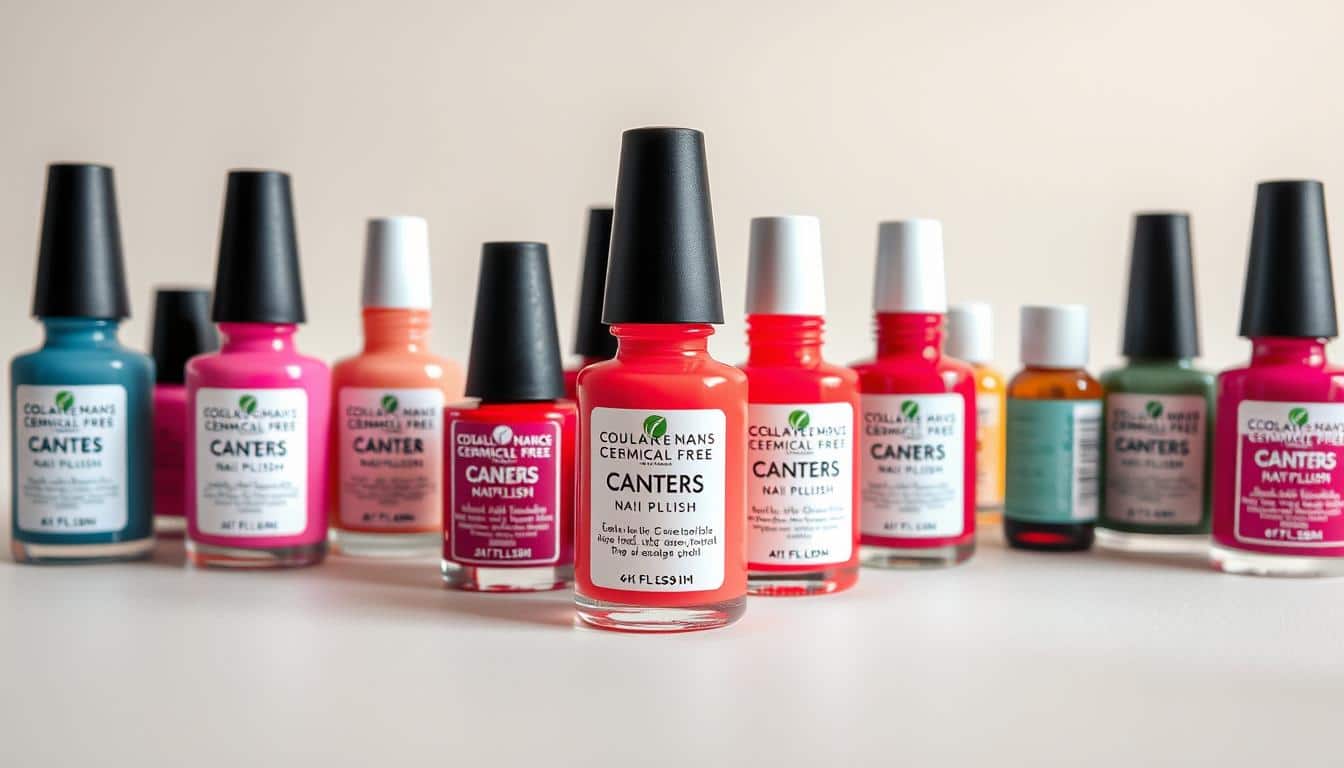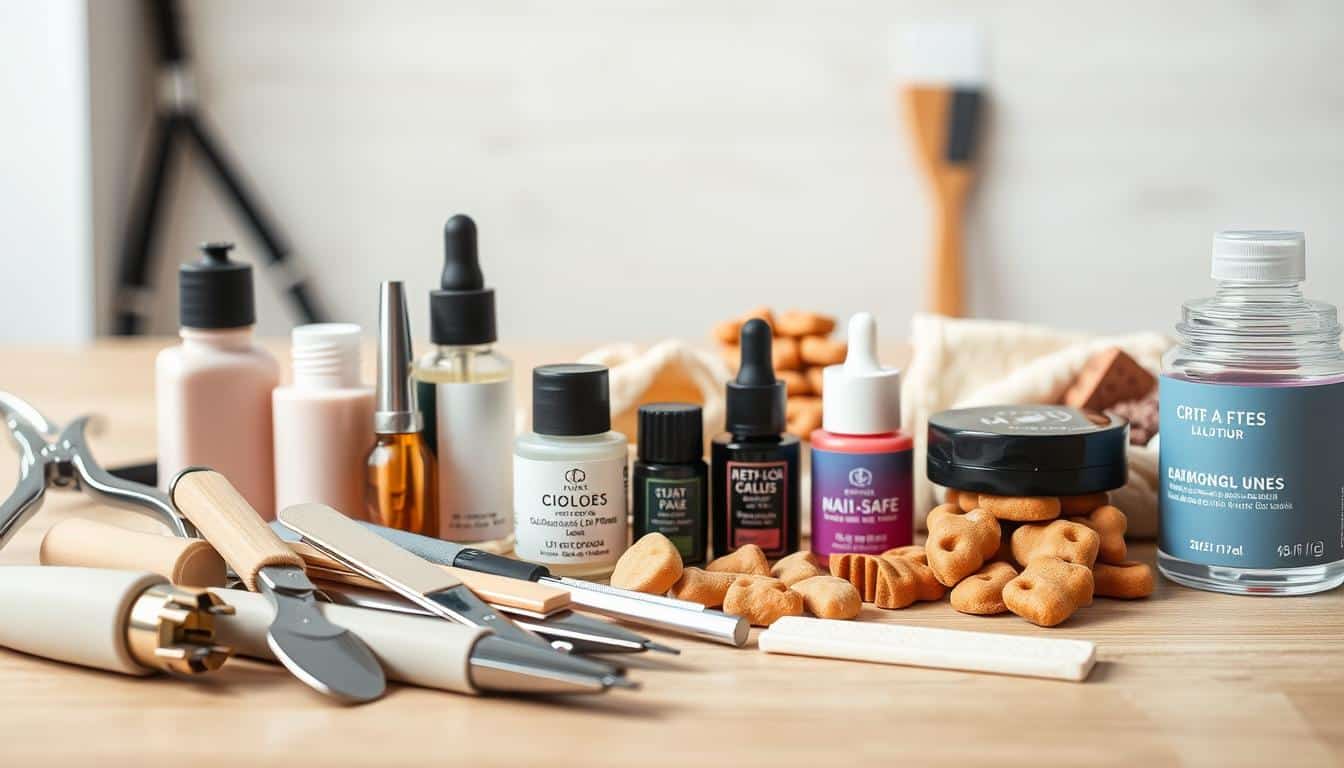Anúncios
Keeping our pets and homes clean is very important for health. This guide will show you key pet hygiene tips. It’s crucial to keep our pets safe and prevent sickness. By using these tips, your pets will be safer and your home more enjoyable.
The Importance of Pet Safe Hygiene
Keeping pets clean is key to enjoying their health benefits. Pets help lower stress and improve heart health. They also make us more social and active. But, it’s important to know about zoonotic diseases. These diseases can go from animals to humans if we’re not careful.
Health Benefits of Pets
Pets are great for our health in many ways. Studies show that having a pet can:
- Lower stress levels.
- Improve cardiovascular health.
- Encourage regular exercise and outdoor activities.
- Enhance social interactions and reduce feelings of loneliness.
These benefits are for everyone. That makes having a pet a very rewarding choice.
Understanding Zoonotic Diseases
Knowing about zoonotic diseases is important. It helps us stay healthy around our pets. Some common diseases are:
- Salmonella, which can be contracted from reptiles and contaminated pet food.
- Lyme disease, transmitted through ticks found on pets.
- Ringworm, a fungal infection that can spread through close contact.
Good hygiene can lower the chance of these diseases. This makes sure pets keep bringing joy, not health worries.

Choosing the Right Pet for Your Home
Choosing the right pet is important. You must think about how it will fit with your home and care abilities. Every pet has needs and traits that affect your life and theirs. Before you decide to bring a new pet home, it’s smart to research their specific needs.
Researching Pet Care Needs
Getting to know the care needs of pets is key before choosing one. You should look into:
- Life expectancy of the pet
- Size and breed specifics
- Dietary and housing requirements
- Routine veterinary care and associated costs
Knowing these things ensures you’re ready for pet ownership.
Assessing Your Household’s Compatibility
Checking if your home is right for a pet is crucial for harmony. Think about:
- The activity level of household members
- Allergies or sensitivities to certain animals
- Presence of small children or other pets
Matching your family’s lifestyle with a pet’s needs can avoid problems. It helps build a strong relationship with your new pet.
Essential Handwashing Practices
Keeping hands clean is key when you own pets. It really helps stop germs from spreading between animals and people. Good handwashing makes things safer for pets and their owners.
When to Wash Your Hands
Make sure to wash your hands often, especially:
- After touching pets, like when you pet or groom them
- Before and after you deal with pet food
- After cleaning where your pet lives or their litter box
- After you play with pets
Effective Handwashing Techniques
To keep hands clean, you need to wash them right. Here’s how:
- Wet your hands with clean running water.
- Put on soap and rub your hands together well.
- Make sure to scrub everywhere, even between fingers and under nails, for 20 seconds at least.
- Rinse off the soap with clean running water.
- Dry your hands with a clean towel or just air dry them.
If there’s no soap and water around, use a hand sanitizer that has at least 60% alcohol. Teaching kids how to wash hands the right way helps them develop good habits. This makes hand cleanliness better at home.
Regular Veterinary Care for Your Pets
It’s vital to make sure your pets get regular check-ups at the vet. These visits let you learn about your pet’s health. They also keep your pet’s vaccinations updated to avoid sickness. Routine exams are key. They find health issues early, stopping them from getting worse.
Keeping Up with Vaccinations
Vaccinations keep pets safe from many diseases, making them live longer and happier. Booster shots are often needed. It’s key to know when your pet needs these. Talking to your vet helps keep vaccinations current. Not following this schedule can be harmful to both pets and family.
The Importance of Routine Check-ups
Regular check-ups track your pet’s health and spot problems early. In these visits, vets do detailed checks. These can reveal health issues you might not see. These check-ups also cover diet, exercise, and behavior. Starting a routine for vet visits puts you in charge of your pet’s health.
Pet Safe Hygiene Tips for a Clean Home
Keeping your home clean is vital for your pets and you. Good pet hygiene tips can help stop germs and allergies spreading. Disinfecting your pet’s gear is crucial for a healthy living area. Making special spots for your pets and keeping those clean helps everyone stay healthy.
Disinfecting Pet Supplies
Getting rid of dangerous germs on pet supplies is key. Here’s how to clean:
- Choose disinfectants that are safe for animals.
- Regularly wash bowls, toys, and bedding to remove dirt.
- Clean the areas where your pets hang out the most.
Creating a Safe Living Space
Having special spots for pets adds to their safety and comfort. Remember to:
- Make some places off-limits where food is handled or eaten.
- Keep your counters and floors clean.
- Pick cleaning products that are safe for pets.
Cleaning Your Pet’s Litter Box
Keeping your cat’s litter box clean is key for its health and your home’s cleanliness. Daily cleaning stops bad smells and cuts the risk of sickness. Here are tips to keep the litter box clean.
Daily Maintenance Tips
Daily litter box cleaning is a must. Follow these steps for a clean box:
- Remove soiled litter daily for a tidy box.
- Use a specific scooper to avoid mess.
- Change the litter weekly to keep it fresh.
- Wash the box with mild soap when changing litter.
Handling Cat Waste Safely
It’s important to stay safe when cleaning the litter box. Here are safety tips:
- Wear gloves to avoid touching waste.
- Seal waste in a bag to stop smells.
- Pregnant women shouldn’t clean the box due to health risks.
- Place the box in a place with good air flow.
Proper Waste Disposal Practices
It’s crucial to dispose of waste effectively to keep our environment clean. This is especially true for handling dog poop. Dog waste can carry dangerous germs that can make both pets and people sick. By disposing of waste properly, we can protect the health of our community and our children.
Managing Dog Waste Outdoors
When you’re outside with your dog, it’s important to be mindful of cleaning up. Here’s what pet owners should do:
- Always carry biodegradable bags to pick up dog feces promptly.
- Dispose of waste bags in the appropriate containers.
- Encourage others in the community to follow the same waste disposal practices.
- Consider local ordinances regarding public places to ensure compliance.
Keeping Kids Safe from Animal Waste
Keeping kids safe around animal waste is very important for families with pets. It’s critical to teach them to steer clear of areas where pets have gone to the bathroom. Here’s how to keep them safe:
- Educate children on the dangers of touching pet waste.
- Cover sandboxes or play areas to prevent contamination.
- Supervise children while playing outdoors to ensure they stay clear of dog waste.
- Inform them about the importance of washing hands after outdoor play.
Supervising Children Around Pets
Making sure kids and pets get along safely is critical for a happy home. Watching them closely helps protect everyone. It’s also key to teach kids how to act around pets for safety.
Educating Kids About Pet Interactions
Learning about how to interact with animals is the first step to respect. Here are important tips to share:
- Gently approach pets instead of surprising them.
- Understand animal body language to recognize when a pet feels threatened.
- Encourage calm voices and movements when playing with pets.
Ensuring Safe Playtime
Playing safely is key for fun times with pets and kids. To keep playtime safe, follow these steps:
- Always supervise children while they interact with pets.
- Teach kids to wash their hands after playing with animals.
- Remind children to give pets personal space, avoiding face proximity during play.
Keeping Pets and Food Areas Separate
It’s vital for pet owners to keep their living spaces clean. Making certain areas like kitchens and dining rooms off-limits for pets helps a lot. This keeps the risk of germs low and everyone healthy.
Designating Pet-Free Zones
Having areas where pets can’t go helps people eat without worrying about pet hair. To set up these zones well, you should:
- Choose specific areas, such as the kitchen and dining rooms, where pets are not allowed.
- Communicate with family members about these zones to ensure everyone complies.
- Use gates or barriers to reinforce these pet-free areas if necessary.
Best Practices for Pet Feeding
Feeding pets the right way is key for clean food areas. Follow these important tips for feeding your pets:
- Always feed pets in designated areas away from human food zones.
- Regularly clean and sanitize pet feeding bowls to eliminate bacteria.
- Store pet food securely to prevent contamination from pests or spills.
Conclusion
Keeping your pet clean is super important for a healthy home for both animals and people. By following the hygiene tips we shared, families can make their home safe and cozy for their pets. Making sure pets see the vet regularly, cleaning up well, and being safe around pets can lower the risk of health problems.
These steps are really important. A quick look at pet hygiene shows that good habits can keep pets healthy and keep families safe. Staying clean and safe makes for a better home for everyone.
By focusing on pet hygiene, we’re not just keeping our homes clean; we’re also making them happier. Being responsible pet owners by sticking to these habits improves life for pets and their people. It makes sure everyone has a good time together.



